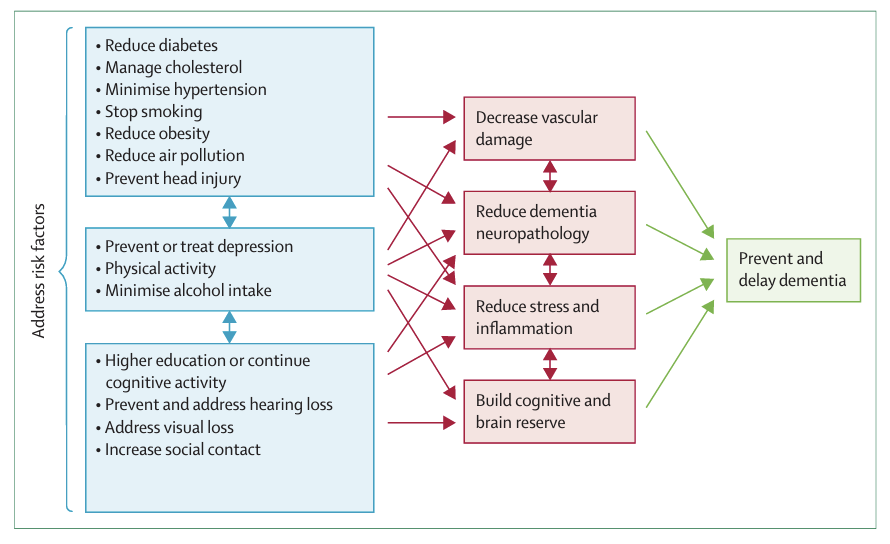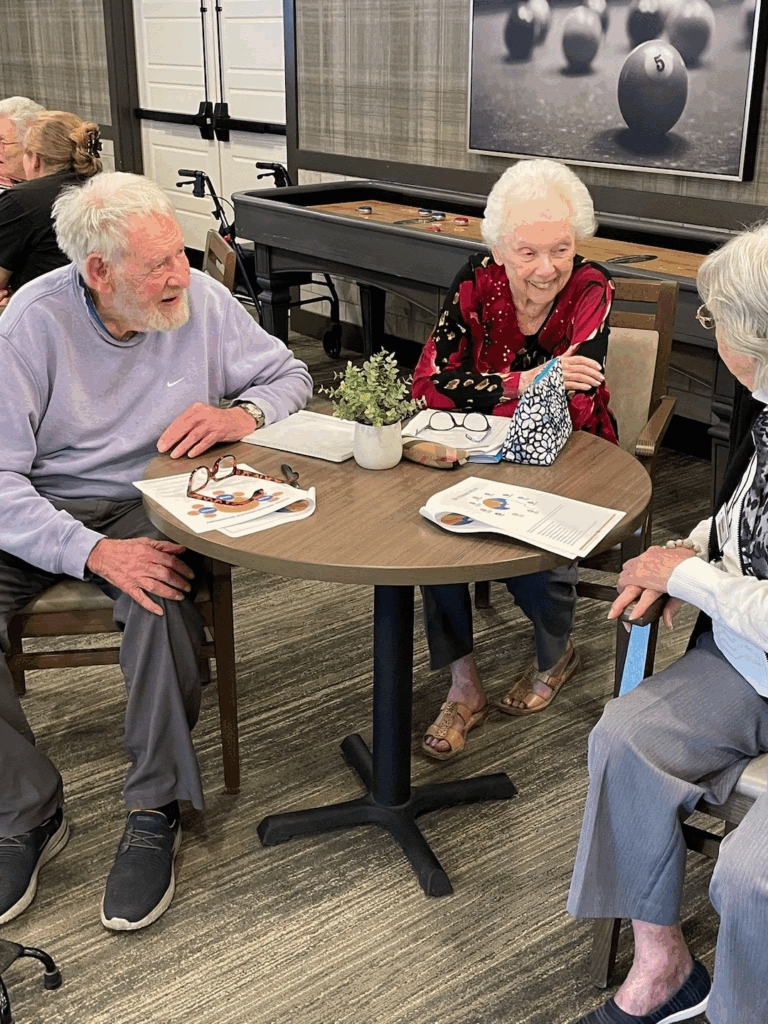
What Every Senior Living Professional Should Know
This past month, the highly esteemed Lancet Commission on Dementia Prevention, Intervention, and Care released updated guidelines, the group’s 3rd report since 2017.
The news is hopeful. Through systematic reviews and meta-analyses from different studies, the commission identified 14 modifiable risk factors that could hold the key to preventing nearly half of dementia cases, up from 12 factors in their previous release.
As senior care professionals, the Lancet Commission findings are an invaluable resource for sharing the clear value of our wellness programs to promote cognitive health and successful aging for our residents. Understanding and addressing the now 14 lifestyle factors identified by this new report is crucial as we plan our interventions and services to help residents and community members live healthier, and more fulfilling lives.
A Lifelong Approach to Enrichment and Risk Reduction
One of the key takeaways from the 2024 report is that it’s never too late to take action. While addressing risk factors early in life is ideal, the report highlights that interventions at any age can still yield benefits. By providing programs and activities that focus on cognitive stimulation, social engagement, physical exercise, and other key areas, we can help reduce risk of dementia regardless of our residents’ stage of life.
Practical Strategies to Incorporate into Life Enrichment Program
The 2024 update outlines specific actions to address the 14 dementia risk factors, many of which can be directly integrated into the activities we plan and lead in communities. They include:
Cognitive Stimulation: Offer educational workshops, brain workouts, and mentally engaging activities to keep residents cognitively sharp.
• Hearing Health: Ensure that residents have access to hearing screenings and hearing aids.
• Social Engagement: Create opportunities for social interaction, whether through group activities, volunteer programs, or peer mentoring.
• Physical Activity: Promote regular exercise classes, walking clubs, or other physical activities.
• Mental Health Support: Offer access to mental health resources and activities that combat depression and provide opportunities for community support.
• Safety: Encourage safe practices such as using seat belts, wearing helmets, and reducing fall risks.
• Nutrition and Wellness: Provide heart-healthy meal options and educate residents on the importance of managing high blood pressure and cholesterol levels.
• Smoking Cessation: Educate residents about the risks of smoking and provide support for those who want to quit.
• Vision Care: Arrange regular vision screenings and ensure that residents have access to corrective lenses or other vision aids.
• Environmental Awareness: Work with your facility to reduce exposure to air pollution and create age-friendly, supportive environments that promote healthy living.
• Alcohol Moderation: Promote awareness of the risks of excessive alcohol consumption and provide education on moderate drinking.
Supporting Residents Beyond Prevention
Even for residents who may already be experiencing cognitive decline, our role in providing supportive, enriching activities is vital. The Lancet Commission recommends interventions that help people live well with dementia, such as planning for the future, maintaining social connections, and providing appropriate care. By fostering an environment where all residents feel engaged and valued, we can improve their overall well-being.
Bringing It All Together: A Proactive Approach
With this research we are better positioned to make a lasting impact on the cognitive health of our residents. The evidence-based programs and activities you provide are not just about keeping residents busy—they are about empowering them to live vitally, with better brain health and more years of active living. By being ambitious about dementia prevention and integrating these new insights into our everyday work, we help to create a brighter, healthier lifestyle for everyone in our care. The power of 14 is in our hands—let’s use it to make a lasting difference.
For more information on the Total Brain Health programs to support brain wellness with guided, group-based holistic training for older adults, contact us at info@totalbrainhealth.com.
Reference article: The Lancet Commissions Dementia prevention, intervention, and care:
Body Brain Fitness Diet Intellectual Health Lifestyle Memory Loss Mental Health Senior Living Social Engagement Thinking Skills Training



